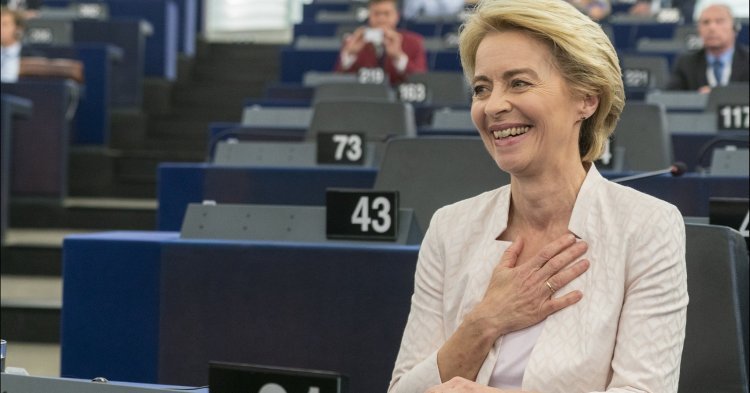The heads of state and government of EU member states have proven in the last few weeks that the old Brussels of backroom politics and untransparent deals isn’t a thing of the past. To the contrary, this Brussels whose democratic deficit we can still attest to has yet again defied the voice of the civil society.
While the Parliament was still studying the options for coalitions to get a majority for a Commission candidate, the European Council interpreted this as weakness. Instead of a person from the ranks of the Spitzenkandidaten, they proposed the German defence minister, ignoring the lead candidate principle. For the voters who cast their ballot for one of the lead candidates on 26 May, and for all politicians and volunteers at all levels who advocated for this principle, this was a slap in the face.
A victory of rationality and compromise
Von der Leyen’s razor-thin parliamentary majority of nine votes shows that she has to prove herself. Her election is not a final victory for intergovernmental Europe or even a victorious battle. Rather, it is a victory for a rational European Parliament and for a consensus-minded Commission President. With von der Leyen’s election, the European Parliament showed that it doesn’t want to precipitate an institutional paralysis over questions of principle.
The decision was wise for numerous reasons. Firstly, the Parliament avoided the potentially months-long dispute that would have showcased to the world’s great powers how disunited not only the EU member states but also the institutions are. Through von der Leyen’s election, the Parliament restored the readiness to act that the EU urgently needs on the international arena. Led by Ursula von der Leyen who simply knows this environment, and who can also deal with alpha males like Trump and Putin, the EU is very well-equipped.
Secondly, MEPs showed their stature, as they didn’t punish an objectively good candidate for the behaviour and wrongdoings of the European Council. Von der Leyen and her readiness for compromise are what the EU will need in the next five-year legislative period. She is a convinced European who can perform the role of mediator between the Eastern and Western EU member states. When looking at the politicians nominated for the EU top jobs, who all come from the Western member states, this is an important signal.
Finally, the Parliament also showed that it can act strategically. Von der Leyen knows just as well as the MEPs that she still has to work to get long-term confidence from the Parliament. With von der Leyen’s election, the MEPs took a leap of faith, and now she owes them. Her passionate speech and her promises to the Parliament, above all the strengthening of its role in the legislative process, are something the MEPs won’t forget quickly.
If the Commission didn’t bring forward initiatives that match von der Leyen’s promises, it would not be surprising if the Parliament adopted resolutions to request these. With their votes for von der Leyen, the MEPs have brought themselves into a strong position vis-à-vis the Commission President and shown clearly that their voice will count in the next legislative period, even if no Spitzenkandidat became the Commission President.
Back to the future: Democratic Europe 3.0
While the European Parliament represents the citizens, the Commission has the title of “guardian of the treaties” as the institution that promotes the EU’s general interest. In concrete terms, this means that as the only institution with the right of legislative initiative it can put themes on the agenda that serve the EU’s development, without being motivated by national interests like the Council or by political groups’ interests like the Parliament. The Commission can and should use this role as a politically independent executive as it repairs the damaged trust between the Parliament and the Council.
As the Commission President, von der Leyen won’t only represent the EU on individual questions, or just give the yearly State of the European Union speech. She will also be the leader of the highest governmental body in the EU. Around 32,000 people work for the European Commission, and as the President, von der Leyen will define the guidelines of concrete European policy.
Reforming the European electoral law should be one of the initiatives that von der Leyen brings forward fast, as she supported the introduction of transnational lists for European elections and the Spitzenkandidaten principle in her candidacy speech. There already was a proposal for transnational lists last year but it was rejected in the European Parliament because of votes from the European People’s Party. For Emmanuel Macron, on whose demand France had strongly spoken for transnational lists, this rejection also meant abandoning the Spitzenkandidaten system – it was all or nothing for Macron.
Ursula von der Leyen is Macron’s dream candidate for Commission President, and she could bring back the idea of transnational lists from the drawer. Such a proposal shouldn’t fail again in the European Parliament because the bitter downfall of the EPP’s lead candidate Manfred Weber should have taught the party its lesson.



Follow the comments: |
|
